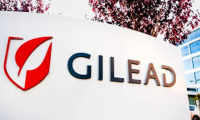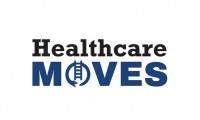-
Gilead signs antibody deal with Biocytogen amid ADC buzz
- Source: drugdu
- 86
- February 21, 2024
-
European Commission greenlights Mirati’s Krazati in KRAS-mutated NSCLC
- Source: drugdu
- 177
- January 13, 2024
-
Pfizer PARP inhibitor Talzenna nabs EU combo nod
- Source: drugdu
- 124
- January 11, 2024
-
CVS Caremark to kick AbbVie’s Humira off some formularies in favor of cheaper biosimilars
- Source: drugdu
- 138
- January 6, 2024
-
A Monthly Summary of Hires and Layoffs
- Source: drugdu
- 228
- January 3, 2024
-
Regeneron fends off Viatris’ Eylea biosimilar with patent win
- Source: drugdu
- 165
- January 3, 2024
-
M&A saw an uptick in 2023. Analysts expect the trend to continue
- Source: drugdu
- 227
- December 26, 2023
-
As ICER places a spotlight on pharma’s price hikes, J&J, Roche and more hit back
- Source: drugdu
- 94
- December 13, 2023
-
As Stelara cliff looms, J&J expects 25 blockbuster drugs to drive future sales growth
- Source: drugdu
- 95
- December 7, 2023
-
Samsung Bioepis, J&J Ink Settlement and License Deal for Stelara Biosimilar
- Source: drugdu
- 130
- December 4, 2023
your submission has already been received.
OK
Subscribe
Please enter a valid Email address!
Submit
The most relevant industry news & insight will be sent to you every two weeks.













